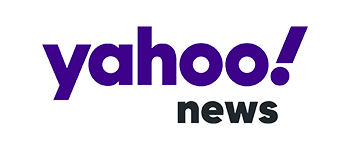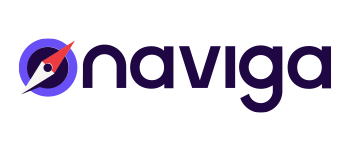Food security is a critical global issue, with increasing demand for sustainable agricultural practices to ensure a stable food supply for the growing population. Tokenization of agricultural assets offers a groundbreaking solution to this challenge, providing new opportunities for investment in food security. This article explores how tokenized agriculture can enhance food security and highlights DAMREV’s innovative approach to leading this transformation.
Understanding Tokenized Agriculture
Tokenized agriculture involves converting ownership rights of agricultural assets, such as farmland, crops, or livestock, into digital tokens on a blockchain. Each token represents a specific quantity of the asset and can be traded, sold, or used as collateral in financial transactions. This process offers several key benefits:
- Transparency: Blockchain technology ensures that all transactions and ownership records are transparent and immutable, reducing fraud and enhancing trust.
- Efficiency: Smart contracts automate and streamline processes, reducing administrative costs and delays.
- Accessibility: Tokenization lowers barriers to entry, enabling more participants to engage in agricultural investments.
- Liquidity: Tokenized agricultural assets can be traded on digital platforms, increasing liquidity and providing quicker access to capital.
The Impact on Food Security
- Enhanced Transparency and Trust
Blockchain technology provides a transparent and immutable ledger for recording transactions. This enhanced transparency is particularly beneficial for agricultural investments, where trust is paramount. By ensuring that all transactions are recorded accurately and cannot be tampered with, blockchain reduces the risk of fraud and errors. This builds trust among investors, farmers, and other stakeholders, facilitating smoother and more secure agricultural investments.
- Increased Efficiency
Tokenized agriculture streamlines the process of investing in and financing agricultural projects. Smart contracts can automate key aspects of agricultural finance, such as payment settlements, compliance checks, and document verification. This reduces the time and cost associated with traditional agricultural investments, making it easier and faster for investors to engage in food security projects. The increased efficiency also helps to reduce the risk of delays and disputes, further enhancing the reliability of agricultural investments.
- Improved Accessibility
By lowering barriers to entry, tokenized agriculture makes it easier for smaller investors and new market participants to engage in agricultural investments. Traditional agricultural investments can be complex and costly, often requiring significant resources and connections. Tokenization democratizes access to agricultural investments by providing a more straightforward and cost-effective way to invest in food security projects. This can lead to greater inclusivity and competition in agricultural investments, benefiting farmers and investors of all sizes.
- Enhanced Liquidity
Tokenized agricultural assets can be traded on digital platforms, providing greater liquidity and flexibility in the market. This increased liquidity makes it easier for farmers to access capital by using their tokenized assets as collateral. It also allows investors to enter and exit positions more easily, enhancing market dynamics and price discovery. The ability to quickly and easily trade tokenized agricultural assets can help to stabilize markets and reduce volatility.
- Risk Mitigation
Tokenized agriculture can help to mitigate various risks associated with agricultural investments. By providing a transparent and immutable record of transactions, blockchain reduces the risk of fraud and counterparty default. Smart contracts can also enforce compliance with agricultural finance agreements, reducing the risk of disputes and breaches. Additionally, the increased liquidity provided by tokenization can help farmers and investors manage their cash flow and liquidity risks more effectively.
DAMREV’s Approach to Tokenized Agriculture
DAMREV is at the forefront of tokenized agriculture, leveraging blockchain technology to create a more transparent, efficient, and inclusive agricultural investment ecosystem. Here’s how DAMREV is leading the way:
- Blockchain Integration: DAMREV utilizes the Stellar blockchain to tokenize agricultural assets, ensuring transparency, efficiency, and security. The use of Stellar’s blockchain technology provides low transaction costs and fast processing times, making it ideal for tokenized agriculture.
- Enhanced Transparency: DAMREV’s platform ensures that all transactions and records are transparent and immutable. This enhanced transparency provides investors and farmers with confidence in the integrity of the agricultural investment process.
- Streamlined Processes: DAMREV leverages smart contracts to automate key aspects of agricultural finance, reducing the time and cost associated with traditional processes. This increased efficiency helps investors and farmers engage in food security projects more easily and reliably.
- Improved Accessibility: DAMREV lowers barriers to entry, enabling more investors to participate in agricultural investments. By providing a straightforward and cost-effective way to invest in food security projects, DAMREV democratizes access to agricultural investments.
- Increased Liquidity: DAMREV’s platform enhances liquidity by enabling tokenized agricultural assets to be traded on digital platforms. This provides farmers with quicker access to capital and investors with greater flexibility in the market.
- Regulatory Compliance: DAMREV works closely with regulators to ensure that tokenized agricultural assets comply with local and international regulations. This collaboration helps create clear guidelines and standards for tokenized agriculture.
Conclusion
Tokenized agriculture offers a promising solution to some of the most pressing challenges in food security. By leveraging blockchain technology, tokenization can create a more transparent, efficient, and inclusive agricultural investment ecosystem. DAMREV is leading the way in this transformation, providing investors and farmers with the tools and incentives they need to engage in food security projects and drive the transition to a more sustainable and prosperous future. Through its innovative approach to tokenized agriculture, DAMREV is helping to create a more dynamic and resilient global agricultural market.















